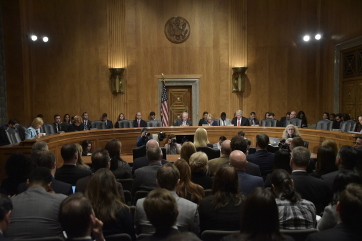An estimated 30,000 people in the United States die of vaccine preventable diseases each year, according to a recent study Medical News Today reported.
Researchers from the University of Colorado in Denver conducted research examining several important aspects adult vaccination. They found that adults have "stubbornly low" vaccination rates.
Only 65 percent of adults 65 years of age and older received an influenza vaccine and only 62 percent received a pneumococcal vaccine, Medical News Today reported.
"Our study suggests that missed opportunities for adult vaccination are common because vaccination status is not being assessed at every (physician's) visit, which is admittedly an ambitious goal," Laura Hurley, assistant professor of medicine at the University of Colorado School of Medicine, told Medical News Today.
Hurley also said that it also be a result of most physicians not stocking all recommended vaccines.
For the study, investigators from the University of Colorado collaborated with the Centers for Disease Control and Prevention to create a national survey of how doctors assessed vaccination status and stocked the 11 recommended adult vaccines in 2012.
Researchers found that physicians reported a variety "of barriers to vaccine stocking and administration but financial barriers dominated the list," the study said. "Physicians in smaller, private practice often assume more risks from stocking expensive vaccine inventories and may be particularly affected by these financial barriers."
Many doctors express difficulty getting reimbursed by insurance companies for vaccines, may be a contributing factor.
For example, the herpes zoster vaccine has been recommended since 2008 but is not widely stocked by physicians. One major reason for this, the study says, is that zoster is covered by Medicare Part D, a pharmaceutical benefit, and physicians report problems with reimbursement. At the same time, the vaccine can require substantial out-of-pocket costs for patients, making it less attractive to them as well.
As a result of these difficulties, many physicians are referring patients to pharmacies or public health facilities for vaccinations, researchers said in the study.
"I feel we need to take a more systematic approach to this issue. As the population ages this could easily grow into a more serious public health issue," Hurley said.
Researchers said to improve adult vaccination there needs to be an increased use of evidence-based methods for vaccination delivery and concerted efforts to resolve financial barriers.








